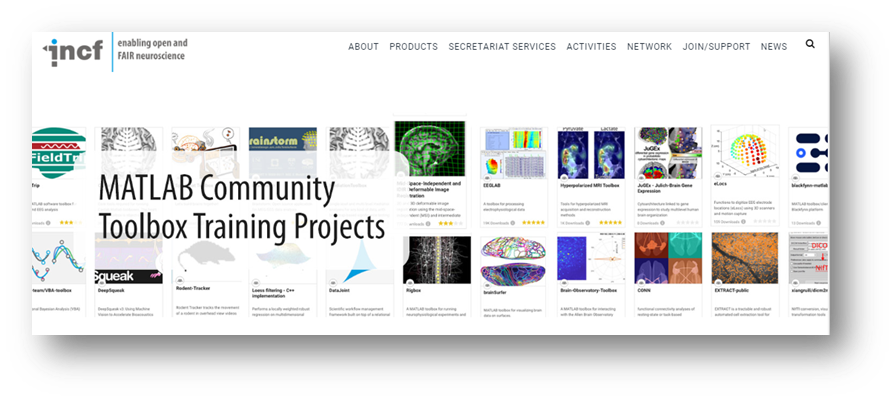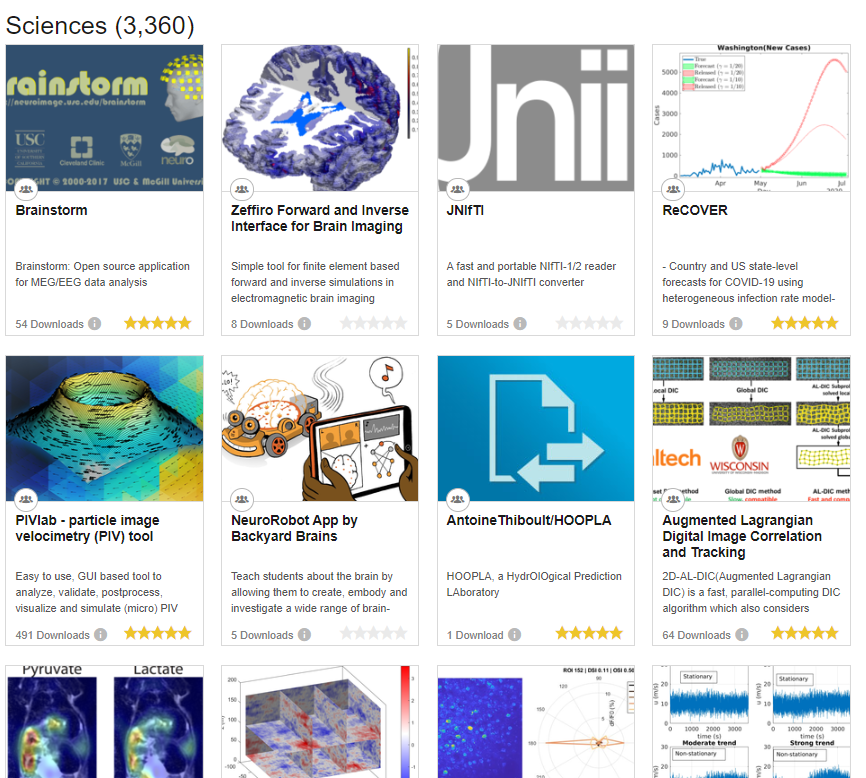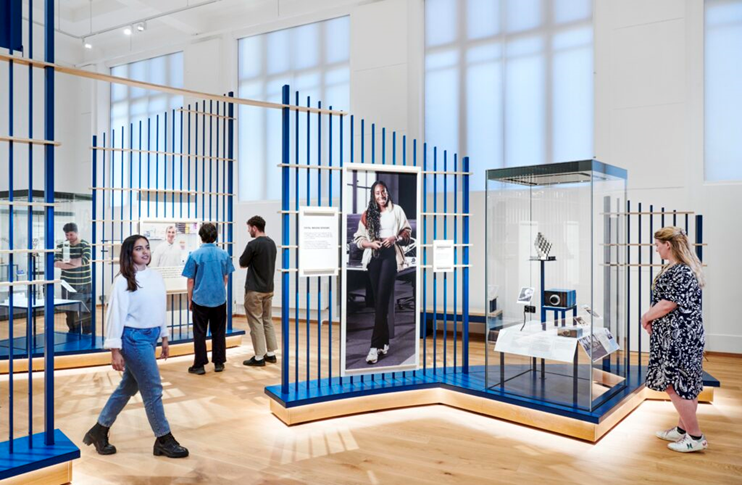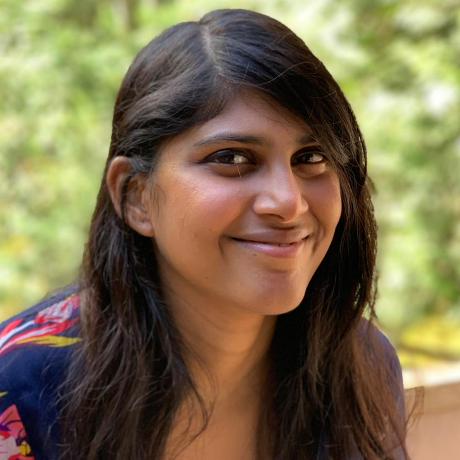This is a guest blog post by Vijay Iyer, Principal Academic Discipline Specialist (Neuroscience) at MathWorks.
For folks in the Northern hemisphere, spring is in the air! If you’re a student or a professor, thoughts may start to drift towards summer. There will be breaks & adventures of course, but passionate scientists & engineers will also be pursuing opportunities like summer schools, field studies, internships, and research sabbaticals. This post is about another kind of (typically) summer opportunity for early career scientists and engineers: contributing code to open-source software projects under the guidance of a mentor. This road less traveled has become more popular in recent years thanks to initiatives like the Google Summer of Codeprogram, which taps organizations around the world to bring together mentors and students to take on open-source software programming projects for a summer stipend. The INCF MCT Training Projects
For the third year, the International Neuroinformatics Coordinating Facility (INCF) is organizing the MATLAB Community Toolbox (MCT) Training Projects over the summer. These training projects are sponsored by the MATLAB community toolbox (MCT) program at MathWorks, which is part of a growing effort at MathWorks to support the ecosystem of open-source MATLAB software projects, especially for research applications. The MCT program is actively supported by our team of academic discipline managers, including myself for the neuroscience discipline. The INCF MCT Training Projects will support 6 trainees for 7-week projects held sometime (dates are flexible) during summer 2023. Trainees are welcomed from all countries. The project work & mentoring will be all virtual.
Open Call for Mentors
The 2023 call for mentor volunteers and trainee applicants is now live: This call seeks to identify at least 5 willing mentors by May 15, so all 6 trainees can be matched by June 2. I’ll act as a mentor for one of the projects, to be focused on neuroscience data standards. Original authors, key contributors, and key sponsors of early-stage or well-established MATLAB community toolboxes are all welcome to step forward as mentors. Mentoring a trainee is often a fruitful way to explore new avenues or backburner ideas that can improve the capabilities, quality, usability, and/or other aspects of the open-source software package. Mentoring of course carries some responsibility, which includes onboarding the trainee to their community toolbox, elucidating the project goals at the outset, and at least 2 rounds of feedback to the trainee during the project period (near the midpoint & end of the project period). All suitable mentors will be invited to post specific goals on the project billboard to help trainees identify 1 or 2 MCTs they are keen to work on as part of their application. Since coding and learning are not entirely predictable endeavors, it’s encouraged to group goals into ‘core goals’ and ‘stretch goals’ to strike the right balance between aspiration & achievement. Early Call for Trainees
Interested trainees for summer 2023 are also now welcome to begin their application with an expression of interest, plus a resume or CV. If trainees already have specific neuroscience MCTs in mind, even before the project billboard is populated, this can be indicated. The INCF (whose ‘C’ stands for coordination!) sometimes successfully tracks down a project contact to become or find a mentor based on a trainee’s strong interest. Trainees are welcomed from all academic backgrounds, including both early-career neuroscientists with some coding background and early-career software engineers with an interest in neuroscience applications.
Matchmaking is an art as much as a science. The INCF has years of experience in coordinating with mentors & trainees alike to help find good fits for all the available slots. Once a trainee & mentor agree to work with each other, they inform the INCF to formalize the match.
Trainees are entitled to a paid stipend comparable to similar programs if they make fair best efforts, engage with their mentors, and contribute at least one GitHub pull request (or equivalent)..
Recapping the 2022 INCF MCT Training Projects
In 2022, all trainees not only reached these goals but also had at least one pull request accepted, i.e., merged into the upstream MATLAB community toolbox codebase. In this way, they made lasting contributions to open-source neuroscience software.
Last year at the program’s mid-summer social, the trainees met each other virtually & took turns sharing about their projects. We were joined by Mike Croucherwho shared some background on research software engineeringsocieties, and the INCF community engagement officer Malin Sandström. The INCF has a tradition of making a blog post after each completed training program. Malin’s post last Fall highlighted the 6 trainees and the MATLAB community toolboxes they contributed towards along with the Mentors who guided them: - Johanna Bayer worked on Tapas/PhysIO, a toolbox for model-based physiological noise correction of fMRI data using peripheral measures of respiration and cardiac pulsation.
- Marielle Darwin contributed to MatNWB a MATLAB interface for reading and writing Neurodata Without Borders (NWB) 2.x files.
- Stefan Dvoretskii participated in the FIT/GIFT projects which implement multiple algorithms for independent component analysis and blind source separation of group (and single subject) functional magnetic resonance imaging data.
- Alex Estrada got involved with GraFT which is a signal extraction method for spatio-temporal data.
- Agah Karakuzu took on qMRLab, an open-source software for quantitative MR image analysis.
- Evgenia Kaurunus collaborated with the NDI (Neuroscience Data Interface) project. A means of specifying and accessing neuroscience data.
During the social, we also spoke about GitHub profiles, which are not just a project management tool but also a way for trainees to showcase their growing portfolio of contributions and achievements. Here’s a view of the 2022 MCT Training Projects trainees as seen on GitHub:
For my part, it’s nice to see not only their accomplishments but also some of the trainee personalities shining through in their profiles. During the social, we also learned that more trainees would prefer telekinesis versus telepathy as a superpower. Something to think about!
Looking Beyond
The 2022 trainees also developed their careers in other ways. One trainee is becoming recognized as a project leader himself, winning a competitive open science award. And two trainees were entering gap years after their degree and are now actively continuing as freelancers for neuroscience open-source software projects, i.e., working as independent research software engineers. We look forward to seeing how the trainees progress in their careers! The INCF MCT Training Projects is the first talent development program the MCT program has sponsored to date. Do you think your organization or field of study would be a good candidate for a similar style program? Please let us know in the comments below.

 Cleve’s Corner: Cleve Moler on Mathematics and Computing
Cleve’s Corner: Cleve Moler on Mathematics and Computing The MATLAB Blog
The MATLAB Blog Guy on Simulink
Guy on Simulink MATLAB Community
MATLAB Community Artificial Intelligence
Artificial Intelligence Developer Zone
Developer Zone Stuart’s MATLAB Videos
Stuart’s MATLAB Videos Behind the Headlines
Behind the Headlines File Exchange Pick of the Week
File Exchange Pick of the Week Hans on IoT
Hans on IoT Student Lounge
Student Lounge MATLAB ユーザーコミュニティー
MATLAB ユーザーコミュニティー Startups, Accelerators, & Entrepreneurs
Startups, Accelerators, & Entrepreneurs Autonomous Systems
Autonomous Systems Quantitative Finance
Quantitative Finance MATLAB Graphics and App Building
MATLAB Graphics and App Building









Comments
To leave a comment, please click here to sign in to your MathWorks Account or create a new one.